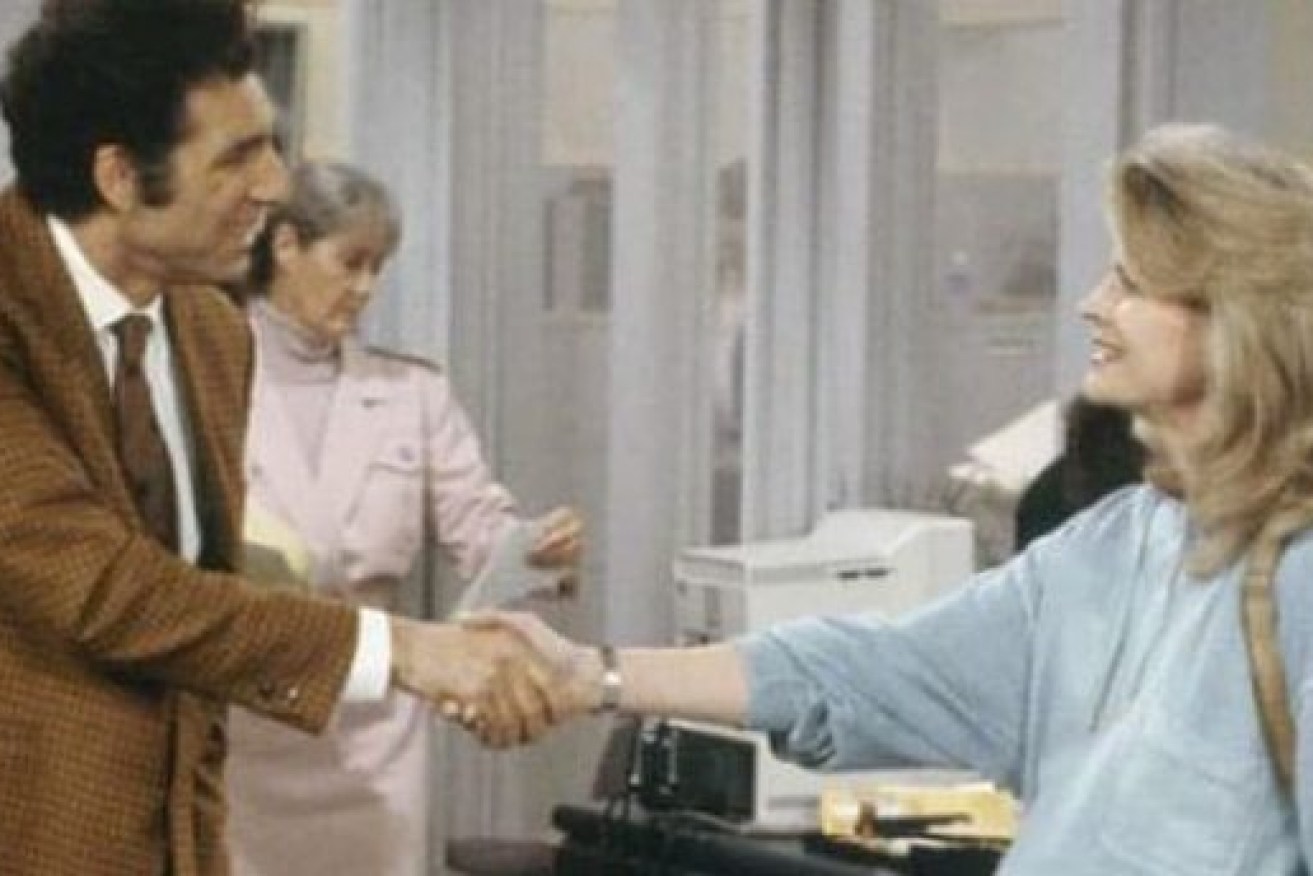Take a memo: How doing away with humble secretary may have cost business dear
It’s a role that now seems like it’s from a bygone era, but as businesses reshape themselves after the pandemic, the humble secretary may be more valuable than ever, writes Shane Rodgers


Seinfeld's Kramer was one of almost 100 secretaries famously sacked by TV character Murphy Brown - now the role no longer exists. (Image: ABC).
In the initial 10 seasons of the sitcom Murphy Brown, the title character managed to go through 93 secretaries, including such notables as John F Kennedy Jnr, Sally Field and Bette Midler.
It was perhaps the least secure role in the television world.
In the end, the show coincided with the final decade of the so-called golden age of the secretary, before this most iconic of roles became too associated with old-school language, stereotypes, and an analogue world.
And, fairly quickly, the march of personal computers, portable printers and email made the role less defined as taking down a memo, typing up a letter and fetching a coffee for someone became harder to justify in workplaces.
In Australia, the decline in the number of workers who identify as a secretary is stark. In the 2006 Census there were 94,403 secretaries. By the 2016 Census this had fallen to 43,146.
During the same period, the number of “personal assistants” grew marginally from 44,000 to 52,500. But if you combine both roles based on a morphing of terminology, there was still a net reduction of more than 40,000 roles over just 10 years.
According to United States labour force data, the golden age of the secretary was from 1960 to 2000 when the number of people in the role grew from 260,000 to 1.5 million. In contrast, if you combine secretary and administrative assistant roles, there has been a decline of 1.6 million positions since 2000.
These days Murphy Brown may struggle to fill the quota.
There is nothing unusual in roles rising and falling, even disappearing, in a world of constant change. Equally the way we describe positions will inevitably change as language wears out and paper boys become media distribution officers.
However, in the case of administrative roles, the change reflects an ongoing dilemma in workplaces around the broader issue of how these positions should work in the age of high technology.
The issue has become a hot talking point again in the pandemic environment as offices are depopulated and companies debate the most efficient way to keep spaces functional, roles supported and the workforce happy.
I remember reading a US study done a few years after an economic downturn in the 1990s when tens of thousands of administrative jobs were stripped from corporate America.
One of the take-outs from the study was that high-paid professionals had quickly, and out of necessity, learnt to type their own letters, empty their own bins, and book their own travel. Tick.
On the downside, they were often really slow and clunky doing it. In some cases, this meant companies were paying a very high hourly rate for someone to inefficiently do basic tasks that were previously performed efficiently by someone on a much lower salary.
Therein lies the problem.
On paper, personal technology lifts our individual productivity. But at what point does the net gain become fully lost when we build low skill tasks into the requirements of roles with very high-cost skills?
Almost everywhere I have worked there has been debate around who should clear the kitchen (often the answer is everybody, but it regularly falls to a dedicated few, particularly when there is a dishwasher involved).
Increasingly there is discussion around which jobs can justify a personal or executive assistant. Often this is inconsistent within organisations based on history, how budgets are allocated and the work preferences of high-value managers.
There is logic in pooling administrative roles in some companies, but this is often based on an assumption that all admin is the same. Often the skills are quite different and the people performing them can be the holders of some of the organisation’s most valuable, specialised, corporate knowledge.
As we grapple with how to reimagine our office environments in the world of hybrid and work-anywhere workplaces, there will be appetite for a full re-examination of the basics of how organisations best function.
This will require some role redesign and a fresh examination of the very nature of productivity and the most efficient way to achieve output that is genuinely cost effective.
When Former US Secretary of State Hillary Clinton guest starred on the 2018 reboot of Murphy Brown as an applicant to be Brown’s secretary, she offered that for four years she was “secretary of a very large organisation”.
That may be taking overqualified a little too far, but it also demonstrates that the term secretary still has cred (although in later episodes they renamed the role to “assistant”).
Shane Rodgers is a business executive, writer, strategist and marketer with a deep interest in what makes people tick and the secret languages of the workplace.












